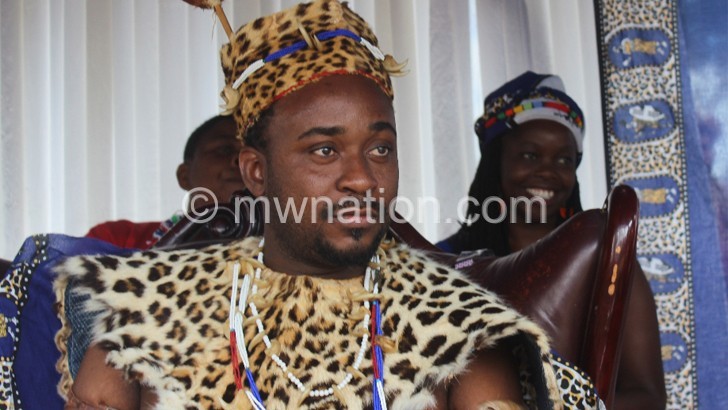Economic empowerment to end gender-based violence
When Daphres Chirwa from Maganjira Chirwa Village, Traditional Authority Kampingo Sibande in Mzimba, separated from her husband after “all love was lost” her major worry was returning to her parents’ home where she had no property.
“My brothers couldn’t welcome me back home. They said it was no longer my home because my husband had paid dowry. They denied me a land to settle and grow crops,” she explains.

Chirwa wept, but tears did not solve her misery. She later reported the matter to the village head, who referred the case to Kampingo Sibande.
“The traditional authority ruled in my favour. I now own three acres for commercial purposes,” she says.
Chirwa’s story is a familiar example of gender-based violence against women in Mzimba.
Statistics indicate that one in three women worldwide continue to experience physical or sexual violence.
Mzimba Women Movement Forum chairperson Agretta Banda says women in the district face various gender-ralated abuses, including property grabbing, child marriage, defilement as well as physical assault.
“We also have problems accessing loans from lending institutions because we do not own property. Our land and other property are grabbed whenever we are divorced or lose our partners,” she says.
Gender activist Barbara Banda says it is possible to end GBV if women are financially empowered.
“Women face numerous challenges. For instance, to get a loan, banks need collateral. But most property is usually not in the names of women. Women, therefore, find it difficult to access the loans,” she explains.
According to a 2018 Malawi Financial Literacy and Consumer Protection Household Survey, only 29 percent of Malawians have access to formal financial services due to the growth of village banks and loan associations.
However, there remains a huge gap to achieve gender equality in the financial services sector.
The study shows that the majority of women do not have formal financial services due to persistent barriers in accessing identification documents, mobile phones, digital skills, financial capability, as well as inappropriate products.
Action Aid Malawi, together with Ministry of Gender, Community Development and Social Welfare, has introduced a women’s digital financial inclusion programme called Zayera.
The initiative seeks to expand opportunities for women micro, small and medium entrepreneurs to access financial services.
The programme was conceived by women forums in Mzimba with support from the ministry, ActionAid, Airtel Malawi and Generation Equality partners through UN Women Malawi.
This is part of the Spotlight Initiative. It targets 2 000 women in the vast district and each group gets mobile money kiosks, mobile phones and a K40 million revolving fund.
The women will also be trained in different areas, including business management and life skills to eliminate violence against women and girls.
ActionAid executive director Pamela Kuwali says Zayera will utilise model digital financial products and services to accelerate financial inclusion for women and the youth.
“Creating livelihood opportunities for women does not only enable them to have an equal opportunity to participate at all levels of society, but also serves to protect women and girls from violence by eliminating vulnerability,” she says.
Kuwali says the programme is not an end in itself, but presents a watershed moment to strengthen empowerment of women and their movements.
“The programme will help close the gender gap that has existed for a long time in traditional financial service and open opportunities for in-depth discussion about gender equality and women empowerment,” she says.
Minister of Gender, Community Development and Social Welfare Patricia Kaliati is worried that the country continues to register gender-based violence despite having favourable laws such as the Gender Equality Act.
She says it is also the same song globally 25 years after the UN General Assembly adopted the Declaration of the Elimination of Violence against Women.
“GBV is a universal problem that is rooted in unequal power dynamics and cuts across any frame of reference,” she says.
The minister says inequality and discrimination remain the underlying causes of violence against women.
“Breaking the cycle of violence against women and girls requires basic changes in terms of culture, attitude and beliefs, including changing prevailing notions of power and negative masculinities,” says Kaliati.
She says women and girls living in poverty are more vulnerable to sexual exploitation, including trafficking.
The minister says those who experience domestic or intimate partner violence have fewer options to leave violent relationships due to lack of income and basic resources.
“Therefore, women’s economic empowerment is essential to achieving gender equality and addressing the structural barriers that restrict women’s ability to break the cycle of violence,” she says.
However, Paramount Chief M’Mbelwa V says such programmes need to take a holistic approach, including the welfare of men as well.
He says some men also face economic pressure and GBV, which pushes them to commit suicide.
He explains: “Currently Mzimba is ranked number two after Dowa with high cases of suicide among men.
“Culturally a man is head of family and society expects them to have a strong character.
“This social expectation forces them to suffer in silence whenever they are abused by their spouses.”





